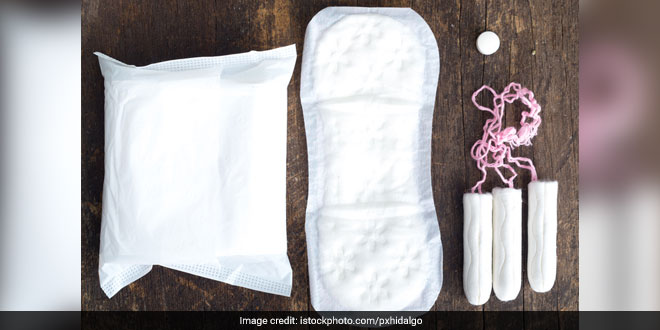New Delhi: With no facility or infrastructure available to discard the menstrual waste, the National Green Tribunal (NGT) recently issued notices to Maharashtra authorities and top sanitary product manufacturers. The green court said sanitary napkins and diapers manufacturers are violating the laws under Solid Waste Management Rules (SWM), 2016 by not providing pouches or wrappers to dispose of the waste. In India, upto 1 billion of sanitary waste is generated every month which eventually ends up in our landfills. Since the conventional pads are made from plastic polymers they take years to decompose.
The notice was served to the state government and various municipal bodies, Maharashtra Pollution Control Board, top manufacturers like Johnson & Johnson, Unichem India Pvt Ltd, Kimberly-Clark Lever Ltd, and Procter & Gamble India (P&G) after a plea was filed by a female student of Shankarrao Chavan Law College.
Also Read: Non-Compostable Sanitary Waste Is A Huge Threat To Health And Environment: Experts
The complainant contended that though menstrual waste is a part of definition under Sec 3(4) of SWM Rules, 2016 the producers do not provide wrapper for their safe disposal. Giving hard-hitting statistics about the volume of sanitary napkins used by a woman in her lifetime she said, “for a modern woman, periods are unimaginable without disposable sanitary napkins and in a lifetime, a woman can use between 8,000-15,000 disposable pads, tampons or liners.”
The college student, in her plea, also demanded that the state authorities must carry out awareness drives and campaigns especially for the sanitary pads manufacturers and brand owners and direct them to create a provision for safe disposal.
The plea also mentioned about installing ‘Sanitary Napkins Destroying Vending Machines’, as sanitary pads contain bodily fluids, life-threatening pathogens, which severely compromise the health and lives of millions of sanitary workers besides flouting their fundamental Right to Life.
Also Read: Supreme Court Sets An Example On Menstrual Waste, To Install Sanitary Napkin Incinerators
Setting an example, the Supreme Court last month had installed three sanitary napkin vending machines and three incinerators for disposing of used pads in its premises. In the very same week the South Delhi Municipal Corporation (SDMC) launched ‘pink toilet’ with a sanitary napkin vending machine to manage the menstrual waste.
Around 40,000-crore sanitary waste in the form of used napkins create huge garbage in India annually and many a times the non-compostable pads enter the sewerage systems, landfills, fields and water bodies causing huge environmental and public health risks. Similarly, an infant would use around 1,500-2000 disposable diapers till it reaches the age of two, which would require 20 trees to be cut and 1,180 litres of crude oil to manufacture.
With inputs from IANS
























